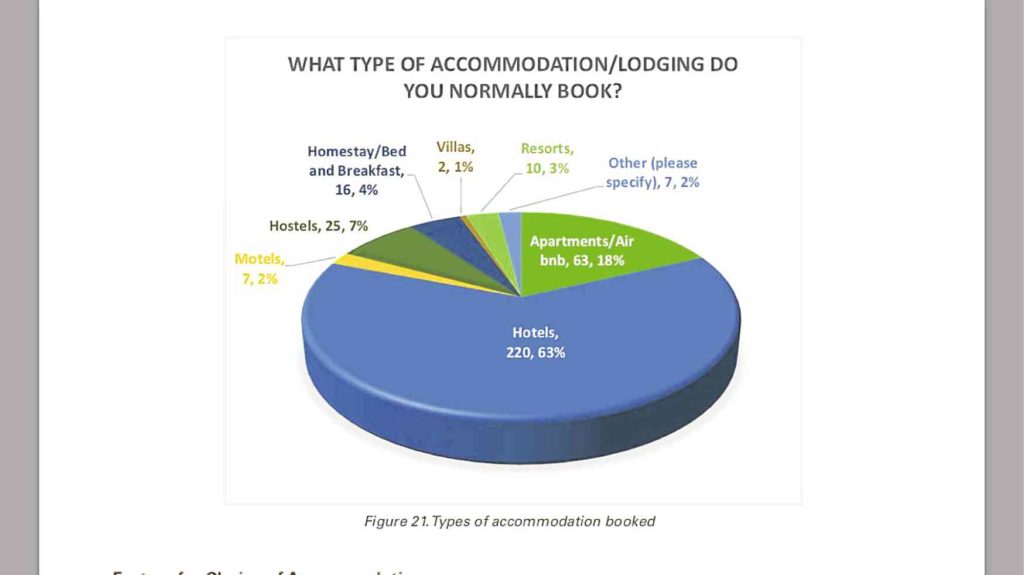
Affordable, authentic, accessible.
These three As sum up the travel experience that Muslim millennial travelers want, says a recent report by global payments and technology company MasterCard and Muslim- and Halal-focused travel platform HalalTrip—and brands should pay close attention, as by 2025, this generation is expected to represent a $100-billion market.
The report, entitled “Muslim Millennial Travel Report 2017,” features a survey of Muslim millennial travelers (referred to as MMTs) which looks at their trip-planning and travel decision-making processes, the key experiences and activities they seek, their social media and other digital behaviors while traveling, and the market’s potential in relation to certain sectors in the tourism and hospitality industries.
The survey has a total of 372 respondents ages 18-36 years old from Africa, the Americas, Asia Pacific, Europe, and the Middle East.
Data was obtained online from April to September 2017.
Some of the survey’s key insights include:
Travel patterns and tripographic profile: MMTs highly value travel as a lifestyle and life experience.
Their Top 3 reasons for traveling are 1) leisure and holiday (93 percent); 2) experiencing local culture and heritage; and 3) visiting friends and relatives.
Almost half said they travel two to five times a year, usually with family (41 percent) and friends (32 percent), with trips lasting an average of four to six days.
As for expenditure, the survey finds that MMTs spend an average of $101-$500 for each component of their trip (flights, accommodation, meals, shopping, and miscellaneous expenses), an indication that this is a cost-conscious market.
Trip-planning and travel decisions: MMTs like to plan their trips well, usually by a month to six months ahead (61 percent).
Their Top 10 destination countries are: Malaysia, Indonesia, Japan, Thailand, Australia, Singapore, UAE, UK, US and India.
Asked to rate 11 factors that influence their travel plans, MMTs ranked cost of flight and lodging, safety and terrorism concerns, and availability of Halal food as their Top 3.
The survey also shows that this market’s travel decisions is highly influenced by online information posted by other travelers, as well those on review sites.
Accommodation choice: The survey reveals that the majority of MMTs book hotels (61 percent), with their choices mainly influenced by affordability, location, and availability of free Wi-Fi.
They book usually through online travel agencies (53 percent).
Muslim-friendly services, such as water-friendliness (bidet sprays), proximity to halal food eateries, as well as whether or not the lodging had all-Halal F&B offerings, are also highly important to MMTs.
Transportation options: MMTs usually book their transportation online through direct booking services, be it for flights, cruises, rail or road. When booking flights in particular, MMTs take into consideration these Top 3 things: The airline’s ticket prices, safety records, and baggage allowance.
Once at their destination, majority go around using public transport (85 percent).
Food and beverage choices: Halal-assured and -certified places, naturally, are MMTs Top 2 dining choices, followed by establishments that label all their food.
When halal options aren’t available, the majority go for seafood and vegetarian restaurants.
Digital media trends: Instagram (73 percent) and Facebook (69 percent) are MMTs, go-to sites when traveling, with majority sharing their experiences through status updates (63 percent) and photos (56 percent).
“Millennial values are increasingly shifting away from the acquisition of goods toward a focus on experiences such as travel. For Muslim millennials, travel is more than just a vacation, it is often viewed as an opportunity for personal growth and development, to seek new experiences and for bonding with family and friends,” says Aisha Islam, Mastercard Indonesia, Malaysia and Brunei division vice president for core and digital products.
With approximately one billion Muslims under the age of 30 and representing 60 percent of the population in Muslim majority countries, the younger Muslim population is where the opportunity lies when it comes to the Muslim travel market, states the report. By 2030, Muslims are projected to make up 29 percent of the global population aged 15-29.
CrescentRating, the world’s leading authority on halal-friendly travel, estimates that 36 percent of Muslim travelers in 2016 were millennials, another 33 percent belonging to Gen Z, or post-millennials. With 121 million Muslim international visitors in 2016, over 72 million Muslim travelers were either millennials or Gen Z.
The report says that by 2025, MMTs will be responsible for over $100 billion in travel expenditure.
“As the Muslim millennial market continues to expand, there is no denying that they will be a key driver of growth for the travel industry. Service providers looking to tap into this segment need to understand their relationship with travel and what they value—such as authenticity, affordability and accessibility, as revealed in our research—while ensuring that they also cater to their faith based needs and requirements,” Islam says.